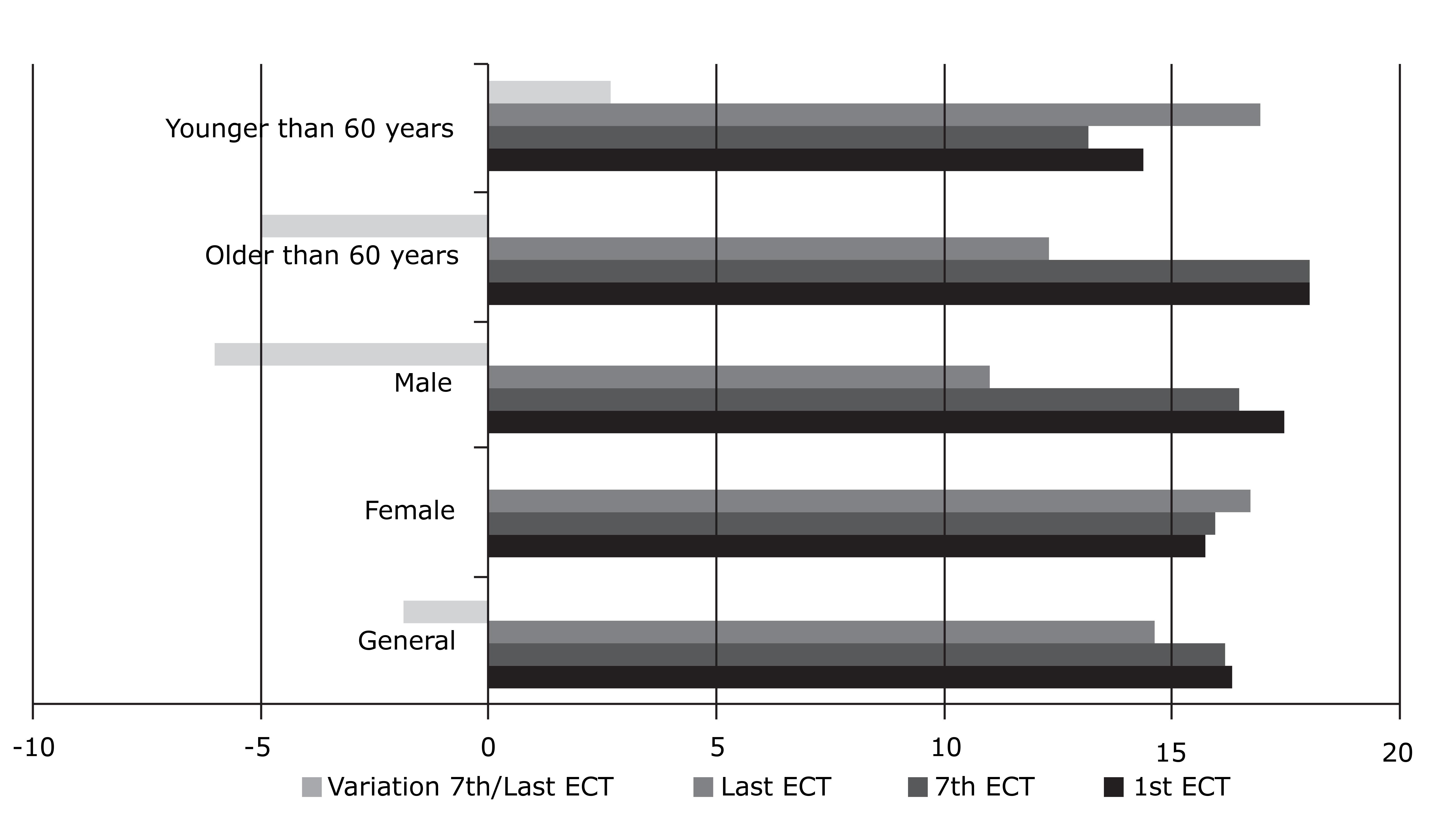Introduction:
More than 60 years after the introduction of modern psychopharmacology, electroconvulsive therapy (ECT) continues to be an essential therapeutic modality in the treatment of mental disorders, but its mechanism of action remains unclear. Hormones play an essential role in the development and expression of a series of behavioral changes. One aspect of the influence of hormones on behavior is their potential contribution to the pathophysiology of psychiatric disorders and the mechanism of action of psychotropic drugs and ECT.
Objective:
We measured blood levels of the hormone cortisol in patients with unipolar depression according to the Diagnostic and Statistical Manual of Mental Disorders, 4th edition (DSM-IV) and compared results with levels found in healthy adults.
Method:
Blood cortisol levels were measured before the beginning of treatment with ECT, at the seventh session, and at the last session, at treatment completion. Depression symptoms were assessed using the Beck Depression Inventory (BDI).
Results:
Cortisol levels remained stable in both men and women between the seventh and the last sessions of ECT; values ranged from 0.686±9.6330 g/dL for women, and there was a mean decrease of 5.825±6.0780 g/dL (p = 0.024). Mean number of ECT sessions was 12. After the seventh and the last ECT sessions, patients with depression and individuals in the control group had similar cortisol levels, whereas BDI scores remained different.
Conclusion:
Cortisol levels decreased during ECT treatment. ECT seems to act as a regulator of the hypothalamic-pituitaryadrenal axis.
Depression; cortisol; ECT; endocrine disorders; hypothalamic-pituitary-adrenal axis



